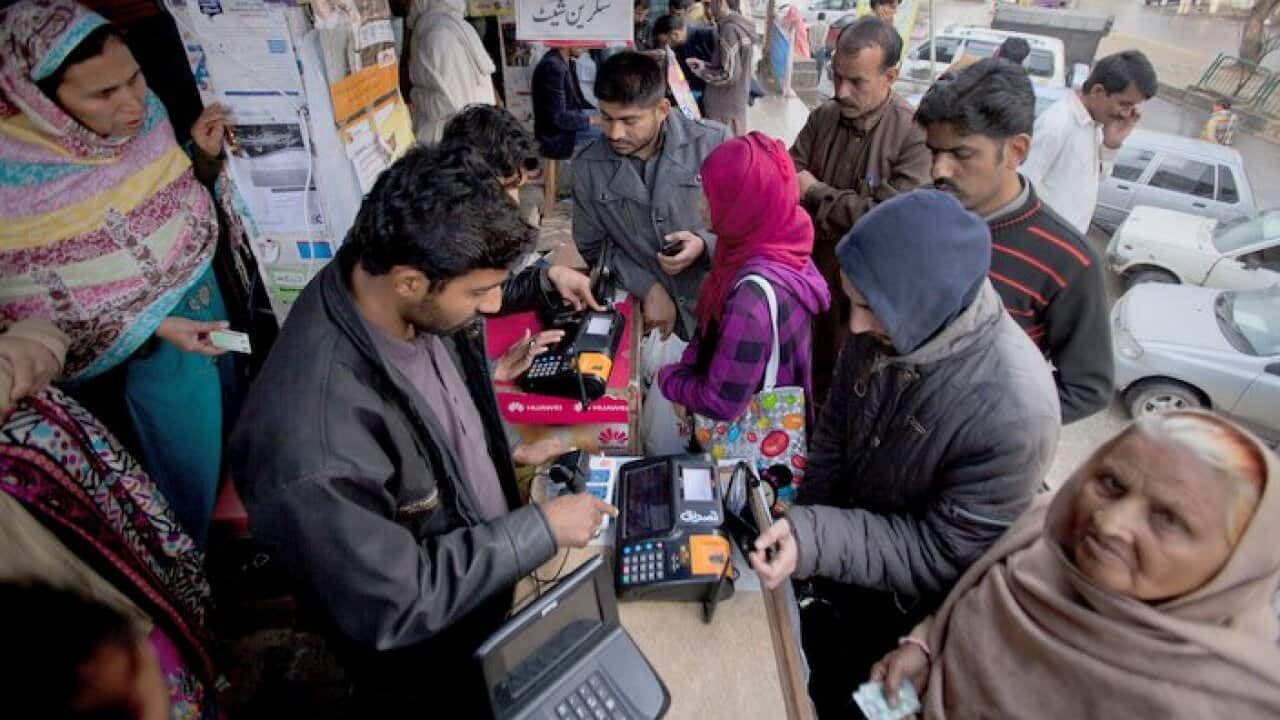(Transcript from World News Radio)
Pakistan has launched a program to collect the fingerprints of all mobile phone users in the country.
The measure is a bid to create a national biometric database to help investigate - and perhaps even prevent - Islamist attacks.
Santilla Chingaipe has the details.
(sfx street sound effects)
In bustling Islamabad, residents are lining up at a local market register their mobile phones.
Since January, Pakistanis have been asked to submit their fingerprints in order to verify their identities.
The government estimates that over 100 million SIM cards need to be verified before April 15, at which point all unverified cell phone numbers will be blocked.
All the mobile phone counters in markets are equipped with fingerprint scanners, and each of them belongs to a different mobile service provider.
Mobile users only need to submit their identification cards and phone numbers, and then have their fingerprints scanned.
The government then relates the identities to users' mobile numbers. .. with the whole process taking about one minute to complete.
Ejaz Raja has come to a local market to verify his mobile phone.
"(through translation) I got the message in advance and come to submit my fingerprint for verification. This is a very good action. If there are any other SIM cards under my name which I don't know, I will have them blocked."
That action Mr Raja refers to is a new measure introduced by the Pakistani government to tackle terrorism.
It was introduced in response to a Taliban attack on a school in Peshawar last December, in which more than 140 students and teachers were killed.
In the days leading up to the attack, authorities say the six perpetrators communicated through mobile phones that were registered to one woman in Peshawar.
Under the new registration system, individuals are allowed to have up to five SIM cards from different mobile service providers, though most only use one to two cards.
One service provider is a company called Zong.
Sales Director Faheem Mumtaz says verifying over 100 million SIM cards within three months is no easy task.
"People understand the criticality of the situation and they are also coming to our franchises, our clients and the retailers to get their SIMs verified. But the people who are living in rural areas, they will be facing some difficulty. For that Zong has employed approximately 600 people just to get these persons verified. So we are committed and we are doing that."
Authorities say once the national biometric database is created, it will be easier for them to trace mobiles used in future attacks.
Michael Foley is the chief executive of another Pakistani mobile service provider, the Telenor Group.
While he welcomes the SIM registration move, he says more counter-terrorism measures are needed.
"I think it's an important step in the national plan to combat terrorism. But let's be very clear, bad people will find ways to do bad things. What this system allows is for law enforcement to have a more effective tool, a more precise tool, when they need to know who is using a phone. But it is not full proof, it's not in itself, solution to the problem of terrorism."
Share

